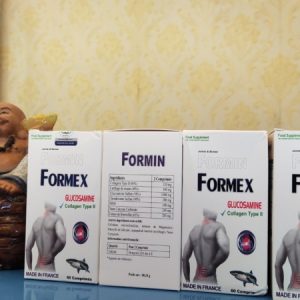/home/ytevagd/domains/ytevagiadinh.com/public_html/wp-includes/Requests/src/Transport/Fsockopen.php
<?php
/**
* fsockopen HTTP transport
*
* @package Requests\Transport
*/
namespace WpOrg\Requests\Transport;
use WpOrg\Requests\Capability;
use WpOrg\Requests\Exception;
use WpOrg\Requests\Exception\InvalidArgument;
use WpOrg\Requests\Port;
use WpOrg\Requests\Requests;
use WpOrg\Requests\Ssl;
use WpOrg\Requests\Transport;
use WpOrg\Requests\Utility\CaseInsensitiveDictionary;
use WpOrg\Requests\Utility\InputValidator;
/**
* fsockopen HTTP transport
*
* @package Requests\Transport
*/
final class Fsockopen implements Transport {
/**
* Second to microsecond conversion
*
* @var integer
*/
const SECOND_IN_MICROSECONDS = 1000000;
/**
* Raw HTTP data
*
* @var string
*/
public $headers = '';
/**
* Stream metadata
*
* @var array Associative array of properties, see {@link https://www.php.net/stream_get_meta_data}
*/
public $info;
/**
* What's the maximum number of bytes we should keep?
*
* @var int|bool Byte count, or false if no limit.
*/
private $max_bytes = false;
/**
* Cache for received connection errors.
*
* @var string
*/
private $connect_error = '';
/**
* Perform a request
*
* @param string|Stringable $url URL to request
* @param array $headers Associative array of request headers
* @param string|array $data Data to send either as the POST body, or as parameters in the URL for a GET/HEAD
* @param array $options Request options, see {@see \WpOrg\Requests\Requests::response()} for documentation
* @return string Raw HTTP result
*
* @throws \WpOrg\Requests\Exception\InvalidArgument When the passed $url argument is not a string or Stringable.
* @throws \WpOrg\Requests\Exception\InvalidArgument When the passed $headers argument is not an array.
* @throws \WpOrg\Requests\Exception\InvalidArgument When the passed $data parameter is not an array or string.
* @throws \WpOrg\Requests\Exception\InvalidArgument When the passed $options argument is not an array.
* @throws \WpOrg\Requests\Exception On failure to connect to socket (`fsockopenerror`)
* @throws \WpOrg\Requests\Exception On socket timeout (`timeout`)
*/
public function request($url, $headers = [], $data = [], $options = []) {
if (InputValidator::is_string_or_stringable($url) === false) {
throw InvalidArgument::create(1, '$url', 'string|Stringable', gettype($url));
}
if (is_array($headers) === false) {
throw InvalidArgument::create(2, '$headers', 'array', gettype($headers));
}
if (!is_array($data) && !is_string($data)) {
if ($data === null) {
$data = '';
} else {
throw InvalidArgument::create(3, '$data', 'array|string', gettype($data));
}
}
if (is_array($options) === false) {
throw InvalidArgument::create(4, '$options', 'array', gettype($options));
}
$options['hooks']->dispatch('fsockopen.before_request');
$url_parts = parse_url($url);
if (empty($url_parts)) {
throw new Exception('Invalid URL.', 'invalidurl', $url);
}
$host = $url_parts['host'];
$context = stream_context_create();
$verifyname = false;
$case_insensitive_headers = new CaseInsensitiveDictionary($headers);
// HTTPS support
if (isset($url_parts['scheme']) && strtolower($url_parts['scheme']) === 'https') {
$remote_socket = 'ssl://' . $host;
if (!isset($url_parts['port'])) {
$url_parts['port'] = Port::HTTPS;
}
$context_options = [
'verify_peer' => true,
'capture_peer_cert' => true,
];
$verifyname = true;
// SNI, if enabled (OpenSSL >=0.9.8j)
// phpcs:ignore PHPCompatibility.Constants.NewConstants.openssl_tlsext_server_nameFound
if (defined('OPENSSL_TLSEXT_SERVER_NAME') && OPENSSL_TLSEXT_SERVER_NAME) {
$context_options['SNI_enabled'] = true;
if (isset($options['verifyname']) && $options['verifyname'] === false) {
$context_options['SNI_enabled'] = false;
}
}
if (isset($options['verify'])) {
if ($options['verify'] === false) {
$context_options['verify_peer'] = false;
$context_options['verify_peer_name'] = false;
$verifyname = false;
} elseif (is_string($options['verify'])) {
$context_options['cafile'] = $options['verify'];
}
}
if (isset($options['verifyname']) && $options['verifyname'] === false) {
$context_options['verify_peer_name'] = false;
$verifyname = false;
}
// Handle the PHP 8.4 deprecation (PHP 9.0 removal) of the function signature we use for stream_context_set_option().
// Ref: https://wiki.php.net/rfc/deprecate_functions_with_overloaded_signatures#stream_context_set_option
if (function_exists('stream_context_set_options')) {
// PHP 8.3+.
stream_context_set_options($context, ['ssl' => $context_options]);
} else {
// PHP < 8.3.
stream_context_set_option($context, ['ssl' => $context_options]);
}
} else {
$remote_socket = 'tcp://' . $host;
}
$this->max_bytes = $options['max_bytes'];
if (!isset($url_parts['port'])) {
$url_parts['port'] = Port::HTTP;
}
$remote_socket .= ':' . $url_parts['port'];
// phpcs:ignore WordPress.PHP.DevelopmentFunctions.error_log_set_error_handler
set_error_handler([$this, 'connect_error_handler'], E_WARNING | E_NOTICE);
$options['hooks']->dispatch('fsockopen.remote_socket', [&$remote_socket]);
$socket = stream_socket_client($remote_socket, $errno, $errstr, ceil($options['connect_timeout']), STREAM_CLIENT_CONNECT, $context);
restore_error_handler();
if ($verifyname && !$this->verify_certificate_from_context($host, $context)) {
throw new Exception('SSL certificate did not match the requested domain name', 'ssl.no_match');
}
if (!$socket) {
if ($errno === 0) {
// Connection issue
throw new Exception(rtrim($this->connect_error), 'fsockopen.connect_error');
}
throw new Exception($errstr, 'fsockopenerror', null, $errno);
}
$data_format = $options['data_format'];
if ($data_format === 'query') {
$path = self::format_get($url_parts, $data);
$data = '';
} else {
$path = self::format_get($url_parts, []);
}
$options['hooks']->dispatch('fsockopen.remote_host_path', [&$path, $url]);
$request_body = '';
$out = sprintf("%s %s HTTP/%.1F\r\n", $options['type'], $path, $options['protocol_version']);
if ($options['type'] !== Requests::TRACE) {
if (is_array($data)) {
$request_body = http_build_query($data, '', '&');
} else {
$request_body = $data;
}
// Always include Content-length on POST requests to prevent
// 411 errors from some servers when the body is empty.
if (!empty($data) || $options['type'] === Requests::POST) {
if (!isset($case_insensitive_headers['Content-Length'])) {
$headers['Content-Length'] = strlen($request_body);
}
if (!isset($case_insensitive_headers['Content-Type'])) {
$headers['Content-Type'] = 'application/x-www-form-urlencoded; charset=UTF-8';
}
}
}
if (!isset($case_insensitive_headers['Host'])) {
$out .= sprintf('Host: %s', $url_parts['host']);
$scheme_lower = strtolower($url_parts['scheme']);
if (($scheme_lower === 'http' && $url_parts['port'] !== Port::HTTP) || ($scheme_lower === 'https' && $url_parts['port'] !== Port::HTTPS)) {
$out .= ':' . $url_parts['port'];
}
$out .= "\r\n";
}
if (!isset($case_insensitive_headers['User-Agent'])) {
$out .= sprintf("User-Agent: %s\r\n", $options['useragent']);
}
$accept_encoding = $this->accept_encoding();
if (!isset($case_insensitive_headers['Accept-Encoding']) && !empty($accept_encoding)) {
$out .= sprintf("Accept-Encoding: %s\r\n", $accept_encoding);
}
$headers = Requests::flatten($headers);
if (!empty($headers)) {
$out .= implode("\r\n", $headers) . "\r\n";
}
$options['hooks']->dispatch('fsockopen.after_headers', [&$out]);
if (substr($out, -2) !== "\r\n") {
$out .= "\r\n";
}
if (!isset($case_insensitive_headers['Connection'])) {
$out .= "Connection: Close\r\n";
}
$out .= "\r\n" . $request_body;
$options['hooks']->dispatch('fsockopen.before_send', [&$out]);
fwrite($socket, $out);
$options['hooks']->dispatch('fsockopen.after_send', [$out]);
if (!$options['blocking']) {
fclose($socket);
$fake_headers = '';
$options['hooks']->dispatch('fsockopen.after_request', [&$fake_headers]);
return '';
}
$timeout_sec = (int) floor($options['timeout']);
if ($timeout_sec === $options['timeout']) {
$timeout_msec = 0;
} else {
$timeout_msec = self::SECOND_IN_MICROSECONDS * $options['timeout'] % self::SECOND_IN_MICROSECONDS;
}
stream_set_timeout($socket, $timeout_sec, $timeout_msec);
$response = '';
$body = '';
$headers = '';
$this->info = stream_get_meta_data($socket);
$size = 0;
$doingbody = false;
$download = false;
if ($options['filename']) {
// phpcs:ignore WordPress.PHP.NoSilencedErrors -- Silenced the PHP native warning in favour of throwing an exception.
$download = @fopen($options['filename'], 'wb');
if ($download === false) {
$error = error_get_last();
throw new Exception($error['message'], 'fopen');
}
}
while (!feof($socket)) {
$this->info = stream_get_meta_data($socket);
if ($this->info['timed_out']) {
throw new Exception('fsocket timed out', 'timeout');
}
$block = fread($socket, Requests::BUFFER_SIZE);
if (!$doingbody) {
$response .= $block;
if (strpos($response, "\r\n\r\n")) {
list($headers, $block) = explode("\r\n\r\n", $response, 2);
$doingbody = true;
}
}
// Are we in body mode now?
if ($doingbody) {
$options['hooks']->dispatch('request.progress', [$block, $size, $this->max_bytes]);
$data_length = strlen($block);
if ($this->max_bytes) {
// Have we already hit a limit?
if ($size === $this->max_bytes) {
continue;
}
if (($size + $data_length) > $this->max_bytes) {
// Limit the length
$limited_length = ($this->max_bytes - $size);
$block = substr($block, 0, $limited_length);
}
}
$size += strlen($block);
if ($download) {
fwrite($download, $block);
} else {
$body .= $block;
}
}
}
$this->headers = $headers;
if ($download) {
fclose($download);
} else {
$this->headers .= "\r\n\r\n" . $body;
}
fclose($socket);
$options['hooks']->dispatch('fsockopen.after_request', [&$this->headers, &$this->info]);
return $this->headers;
}
/**
* Send multiple requests simultaneously
*
* @param array $requests Request data (array of 'url', 'headers', 'data', 'options') as per {@see \WpOrg\Requests\Transport::request()}
* @param array $options Global options, see {@see \WpOrg\Requests\Requests::response()} for documentation
* @return array Array of \WpOrg\Requests\Response objects (may contain \WpOrg\Requests\Exception or string responses as well)
*
* @throws \WpOrg\Requests\Exception\InvalidArgument When the passed $requests argument is not an array or iterable object with array access.
* @throws \WpOrg\Requests\Exception\InvalidArgument When the passed $options argument is not an array.
*/
public function request_multiple($requests, $options) {
// If you're not requesting, we can't get any responses ¯\_(ツ)_/¯
if (empty($requests)) {
return [];
}
if (InputValidator::has_array_access($requests) === false || InputValidator::is_iterable($requests) === false) {
throw InvalidArgument::create(1, '$requests', 'array|ArrayAccess&Traversable', gettype($requests));
}
if (is_array($options) === false) {
throw InvalidArgument::create(2, '$options', 'array', gettype($options));
}
$responses = [];
$class = get_class($this);
foreach ($requests as $id => $request) {
try {
$handler = new $class();
$responses[$id] = $handler->request($request['url'], $request['headers'], $request['data'], $request['options']);
$request['options']['hooks']->dispatch('transport.internal.parse_response', [&$responses[$id], $request]);
} catch (Exception $e) {
$responses[$id] = $e;
}
if (!is_string($responses[$id])) {
$request['options']['hooks']->dispatch('multiple.request.complete', [&$responses[$id], $id]);
}
}
return $responses;
}
/**
* Retrieve the encodings we can accept
*
* @return string Accept-Encoding header value
*/
private static function accept_encoding() {
$type = [];
if (function_exists('gzinflate')) {
$type[] = 'deflate;q=1.0';
}
if (function_exists('gzuncompress')) {
$type[] = 'compress;q=0.5';
}
$type[] = 'gzip;q=0.5';
return implode(', ', $type);
}
/**
* Format a URL given GET data
*
* @param array $url_parts Array of URL parts as received from {@link https://www.php.net/parse_url}
* @param array|object $data Data to build query using, see {@link https://www.php.net/http_build_query}
* @return string URL with data
*/
private static function format_get($url_parts, $data) {
if (!empty($data)) {
if (empty($url_parts['query'])) {
$url_parts['query'] = '';
}
$url_parts['query'] .= '&' . http_build_query($data, '', '&');
$url_parts['query'] = trim($url_parts['query'], '&');
}
if (isset($url_parts['path'])) {
if (isset($url_parts['query'])) {
$get = $url_parts['path'] . '?' . $url_parts['query'];
} else {
$get = $url_parts['path'];
}
} else {
$get = '/';
}
return $get;
}
/**
* Error handler for stream_socket_client()
*
* @param int $errno Error number (e.g. E_WARNING)
* @param string $errstr Error message
*/
public function connect_error_handler($errno, $errstr) {
// Double-check we can handle it
if (($errno & E_WARNING) === 0 && ($errno & E_NOTICE) === 0) {
// Return false to indicate the default error handler should engage
return false;
}
$this->connect_error .= $errstr . "\n";
return true;
}
/**
* Verify the certificate against common name and subject alternative names
*
* Unfortunately, PHP doesn't check the certificate against the alternative
* names, leading things like 'https://www.github.com/' to be invalid.
* Instead
*
* @link https://tools.ietf.org/html/rfc2818#section-3.1 RFC2818, Section 3.1
*
* @param string $host Host name to verify against
* @param resource $context Stream context
* @return bool
*
* @throws \WpOrg\Requests\Exception On failure to connect via TLS (`fsockopen.ssl.connect_error`)
* @throws \WpOrg\Requests\Exception On not obtaining a match for the host (`fsockopen.ssl.no_match`)
*/
public function verify_certificate_from_context($host, $context) {
$meta = stream_context_get_options($context);
// If we don't have SSL options, then we couldn't make the connection at
// all
if (empty($meta) || empty($meta['ssl']) || empty($meta['ssl']['peer_certificate'])) {
throw new Exception(rtrim($this->connect_error), 'ssl.connect_error');
}
$cert = openssl_x509_parse($meta['ssl']['peer_certificate']);
return Ssl::verify_certificate($host, $cert);
}
/**
* Self-test whether the transport can be used.
*
* The available capabilities to test for can be found in {@see \WpOrg\Requests\Capability}.
*
* @codeCoverageIgnore
* @param array<string, bool> $capabilities Optional. Associative array of capabilities to test against, i.e. `['<capability>' => true]`.
* @return bool Whether the transport can be used.
*/
public static function test($capabilities = []) {
if (!function_exists('fsockopen')) {
return false;
}
// If needed, check that streams support SSL
if (isset($capabilities[Capability::SSL]) && $capabilities[Capability::SSL]) {
if (!extension_loaded('openssl') || !function_exists('openssl_x509_parse')) {
return false;
}
}
return true;
}
}
Run Command [Bypass]
Run Command
CVARA – NHẬP KHẨU PHÁP – GIÚP PHÁT TRIỂN CHIỀU CAO VÀ PHÒNG CHỐNG LOÃNG XƯƠNG. - Giải pháp chăm sóc tại nhà Việt Nam
Chuyển đến nội dung
Home / THỰC PHẨM CHỨC NĂNG / CƠ - XƯƠNG - KHỚP
CVARA – NHẬP KHẨU PHÁP – GIÚP PHÁT TRIỂN CHIỀU CAO VÀ PHÒNG CHỐNG LOÃNG XƯƠNG.
CVARA – NHẬP KHẨU PHÁP – BỔ SUNG CALCI NANO VITAMIN D3 VÀ MK7 – GIÚP PHÁT TRIỂN CHIỀU CAO VÀ PHÒNG CHỐNG LOÃNG XƯƠNG.
– Bổ sung Canxi nhằm hỗ trợ phát triển chiều cao cho thanh thiếu niên trong độ tuổi phát triển chiều cao, giúp xương chắc khỏe, phòng ngừa còi xương ở trẻ em
– Chống loãng xương, giúp phục hồi xương gãy, giảm đau lưng cho người lớn, ngăn chặn các hiện tượng thoái hóa, giòn xương do thiếu canxi trong máu, giúp cơ thể khỏe mạnh
– Giảm tình trạng viêm khớp, thoái hóa khớp. Cung cấp canxi, vitamin D3 cho phụ nữ có thai và cho con bú. Tăng cường và phát triển hệ xương ở thai nhi
– Giảm tê bì chân tay, chuột rút. Kết hợp hỗ trợ điều trị thiếu canxi huyết
CAM KẾT HÀNG CHÍNH HÃNG – GIÁ CẢ HỢP LÝ – TIẾT KIỆM 5-7% – GIAO HÀNG TOÀN QUỐC.
CVARA – NHẬP KHẨU PHÁP – GIÚP PHÁT TRIỂN CHIỀU CAO VÀ PHÒNG CHỐNG LOÃNG XƯƠNG. quantity
Mua Hàng









